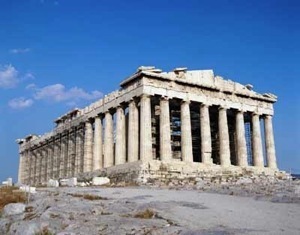The Crime of Misleading the Assembly of Athens and Causing It to Make a Bad Decision...

What was this called in Greek--the crime of misleading the Assembly?
Keith Werhan:
(1) The Athenian law against misleading the demos. Athens, like political communities before and since, adopted laws that dealt harshly with those who would overthrow or otherwise subvert the democracy. Perhaps the most distinctive Athenian provision against subversion was the law, dating perhaps from the early years of the classical democracy, that prescribed the death penalty for Assembly speakers who misled the demos. n294 Every citizen had legal standing to commence such a prosecution, which could be lodged against any rhetor who had advocated an Assembly decision resulting in harm to the polis. The Athenians regarded an Assembly action gone awry as the product of the demos having been deceived by "mischievous advice." When an action turned out badly, the speaker's deception was revealed. In the Athenian view, an Assembly speaker who misled the demos into acting to the detriment of the polis engaged in misconduct tantamount to treason, on a par with those who sought to subvert the democracy or who betrayed Athens to one of its enemies.
An early and classic example of the crime of misleading the demos involved Miltiades, the general (strategos) who had led the Athenian forces to victory at the battle of Marathon. In Herodotus' account, Miltiades, basking in the glow of that triumph, convinced the Assembly to raise an expeditionary force under his command, "without saying against what country . . . [it] would be used--only that . . . [the Athenians] would grow rich if they followed him." According to Herodotus, Miltiades' actual motive was personal. He sought revenge against the Parians for a past wrong. The Paros expedition was an embarrassing failure. Miltiades returned to Athens wounded and humiliated, whereupon the Assembly tried and convicted him for having misled the demos into approving the expedition. Miltiades avoided the death penalty, but he died of his wounds before he could pay the substantial fine that the Assembly had levied upon him...
Keith Werhan (2009), "The Classical Athenian Ancestry of American Freedom of Speech" Supreme Court Review 293.
There must be a single Greek word for this, or at the very least a short phrase. What is it? Is this the graphe paranomon?



J. Bradford DeLong's Blog
- J. Bradford DeLong's profile
- 90 followers



